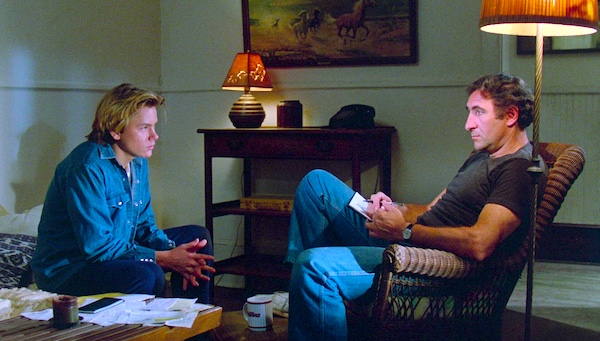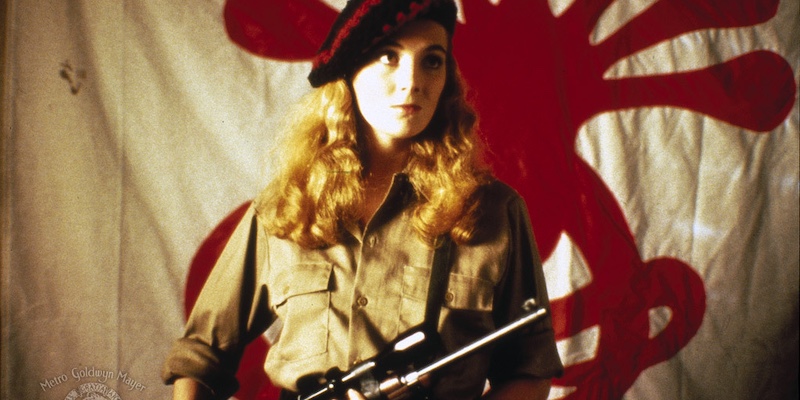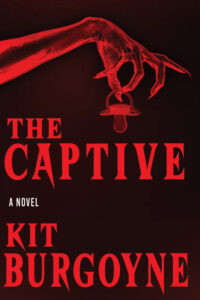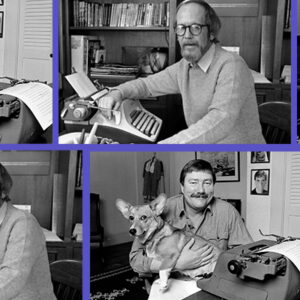When I was writing my novel The Captive, the idea of British left-wing terrorists felt like a retro plot device, as much a throwback to the 1970s as the demonic infant they contend with. However, in June, the protest group Palestine Action, known for their raids on weapons factories, were proscribed as terrorists by the UK Home Office, which had the effect of criminalizing anybody who ‘expresses an opinion or belief that is supportive of [them], and in doing so is reckless as to whether a person to whom the expression is directed will be encouraged to support [them].’ Sally Rooney recently wrote about this that ‘Activists who disrupt the flow of weapons to a genocidal regime may violate petty criminal statutes, but they uphold a far greater law and a more profound human imperative: to protect a people and culture from annihilation.’ If I agreed with her, I wouldn’t dare say so, otherwise the government could send me to prison—a truly extraordinary situation which has left me and pretty much every other British writer I know feeling deeply angry and radicalized. Instead, here are my five favorite films about left-wing militants, ranked in ascending order by how much they are ‘reckless as to whether a person to whom the expression is directed will be encouraged to support’ the main characters.

Patty Hearst
I’m a big Paul Schrader head and this is one of his least seen films. I won’t argue for it as a lost classic, exactly, but it’s a forceful dramatisation of the events that were the biggest inspiration for The Captive. Probably if you look hard enough on the internet, you can find somebody, somewhere, still defending the Symbionese Liberation Army, but this film doesn’t present them as anything other than the clowns they obviously were.

Night Moves
Unlike Paul Schrader, Kelly Reichardt is a director who simply does not make bad films. Also, there is no story in the world she couldn’t render as sombre and conflicted – I’m sure she could remake Apollo 13 and still leave you feeling kind of bummed about those astronauts getting rescued – so it’s no surprise that ecoterrorism feels like a cursed endeavour here. To quote Rick Burin on Letterboxd, ‘Like Melville’s Army of Shadows (or the Labour Party in the 1980s), its characters are essentially powerless, so their acts of violence are ultimately against themselves.’

Running on Empty
There’s a lot of potential in Sidney Lumet’s film about a family who’ve been on the run ever since the parents sabotaged a napalm lab during the Vietnam War. Unfortunately, it focuses on the absolute least interesting part of the story, namely River Phoenix having a high school romance with his music teacher’s daughter. Still, Judd Hirsch and Christine Lahti are excellent as two people who’ve paid an enormous price for a principled act, and so this would be a good watch for any Palestine Action supporter awaiting their court date.

Carlos
This film definitely glamorises terrorism, in the sense that whenever Olivier Assayas follows Édgar Ramírez around with a jittery handheld camera while Wire plays on the soundtrack, it makes Carlos the Jackal look unbelievably cool. But by the end of the story – which I recommend watching at its full length as a three-part miniseries, but was also released as a feature in some markets, so is technically eligible for this list – you realise that, after all that sound and fury, he just never accomplished much.

How to Blow Up a Pipeline
One of the most exhilarating cinema experiences I’ve had in years, and unlike the other films on this list, completely unambivalent in its depiction of direct action as a good thing and a moral duty. As a former Extinction Rebellion protestor, I, too, have risked everything for the climate movement (my stuff got really wet at some of those long outdoor sit-ins), so I felt a deep kinship with my comrades up on screen.
***


















